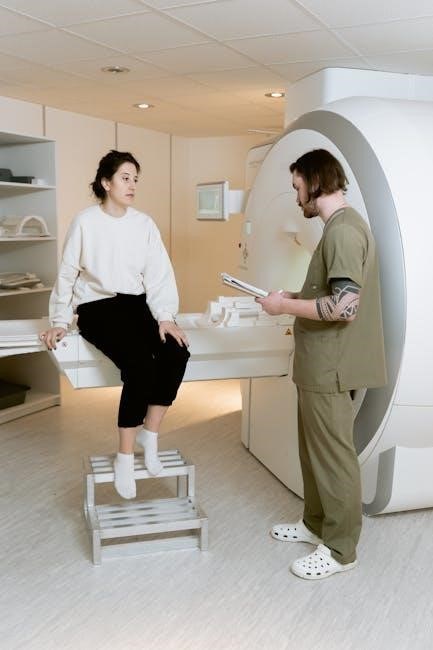
criteria assessment center questions and answers pdf
Assessment centers evaluate candidates through various exercises, interviews, and psychometric tests. They provide a comprehensive evaluation of skills, behaviors, and suitability for roles. Free practice guides and test simulations, like CCAT, help prepare for these challenges, offering sample questions and strategies to enhance performance.

What Are Assessment Centers?
Assessment centers are structured environments where candidates undergo a series of exercises, interviews, and tests to evaluate their skills, behaviors, and suitability for specific roles. These centers use multiple evaluation methods, including in-tray exercises, group discussions, role-plays, and psychometric tests like verbal and numerical reasoning. The goal is to observe how candidates perform under realistic work-related scenarios, providing insights into their problem-solving, leadership, and teamwork abilities. Exercises are often tailored to the job requirements, ensuring a comprehensive assessment of competencies. Assessors or psychologists typically oversee the process to ensure fairness and accuracy. By simulating real-world challenges, assessment centers offer employers a holistic view of a candidate’s potential and readiness for the role.
Types of Exercises in Assessment Centers
Assessment centers feature diverse exercises designed to evaluate various competencies. Common types include in-tray exercises, which simulate office tasks like prioritizing emails, and group discussions, where candidates demonstrate teamwork and communication. Role-play exercises assess interpersonal skills, often involving scenarios like conflict resolution. Psychometric tests, such as verbal and numerical reasoning, measure cognitive abilities. Presentations and case studies test analytical and problem-solving skills. These exercises provide a comprehensive evaluation of a candidate’s abilities, ensuring a well-rounded assessment of their potential to excel in the role. Each exercise is carefully structured to reflect real-world challenges, offering insights into how candidates handle pressure and collaborate with others. The variety of exercises ensures a thorough evaluation of both technical and soft skills.

Common Assessment Center Exercises
- In-Tray Exercises: Test prioritization and decision-making skills.
- Group Discussions: Evaluate teamwork and communication abilities.
- Role-Play Exercises: Assess interpersonal and problem-solving skills.
- Presentations: Measure clarity and confidence in delivering ideas.
- Case Studies: Analyze analytical and strategic thinking.
- Psychometric Tests: Include verbal and numerical reasoning assessments.
These exercises are widely used to evaluate candidates’ skills and suitability for roles, with resources like CCAT practice tests available for preparation.
In-Tray Exercises
In-tray exercises simulate real workplace scenarios, requiring candidates to manage emails, reports, and memos. These tasks assess time management, prioritization, and decision-making skills. Candidates must respond to multiple requests, delegate tasks, and solve problems effectively. The goal is to evaluate how well they handle workload, communicate clearly, and maintain organizational standards. Preparation involves practicing similar scenarios and reviewing sample questions. Tips include focusing on priorities, maintaining clarity in responses, and demonstrating logical thinking. These exercises are commonly used in assessment centers to gauge a candidate’s readiness for managerial or leadership roles. Proper preparation, such as using CCAT practice tests, can significantly improve performance in these exercises.
Group Discussions
Group discussions are interactive exercises where candidates engage in debates or problem-solving activities. These assess communication, teamwork, and leadership skills. Participants are observed on their ability to articulate ideas, listen to others, and contribute constructively. Preparation involves practicing active listening, expressing thoughts clearly, and demonstrating collaborative behavior. Tips include staying calm, avoiding dominance, and showing respect for diverse opinions. These exercises often involve case studies or scenario-based topics, requiring candidates to think critically and work collectively. Effective participation can enhance one’s standing in the assessment process, as it highlights interpersonal and problem-solving abilities. Utilizing resources like CCAT practice tests and assessment guides can provide valuable insights and strategies for excelling in group discussions.
Role-Play Exercises
Role-play exercises simulate real-life workplace scenarios, allowing candidates to demonstrate practical skills. These exercises assess decision-making, communication, and problem-solving abilities. Candidates are given specific roles and must interact with assessors or peers to achieve objectives. Preparation involves understanding common scenarios, such as conflict resolution or client negotiations, and practicing responses. Tips include staying focused, maintaining professionalism, and adapting to the situation. Observers evaluate how well candidates handle challenges, articulate ideas, and exhibit emotional intelligence. These exercises provide insights into how individuals perform under pressure and in dynamic environments. Utilizing practice materials, like CCAT guides or case studies, can help refine these skills and improve performance during assessment centers.

Psychometric Tests in Assessment Centers
Psychometric tests evaluate cognitive abilities and personality traits. They include verbal and numerical reasoning exercises, assessing problem-solving and logical thinking. Free CCAT practice tests and guides help prepare candidates for these challenges, ensuring readiness for timed assessments like the 30-question, 9-minute CCAT simulation. These tools provide insights into decision-making and analytical skills, crucial for employers to gauge suitability for roles. Utilizing these resources allows candidates to refine their abilities and improve performance in assessment centers.

Verbal Reasoning Tests
Verbal reasoning tests assess comprehension, interpretation, and decision-making skills. These exercises present passages or statements, requiring candidates to answer true/false or “cannot say” questions. Free practice materials, like CCAT simulations, offer timed drills to enhance speed and accuracy. They often involve identifying patterns, analyzing data, and making logical conclusions. For instance, a sample question might ask which geometric shape completes a sequence, testing attention to detail and analytical thinking. Candidates are advised to review example questions and explanations to familiarize themselves with the format. Regular practice helps improve critical thinking and time management, essential for success in assessment centers. These tests are widely used to evaluate cognitive abilities and suitability for roles requiring strong verbal skills.
Numerical Reasoning Tests
Numerical reasoning tests evaluate problem-solving and analytical skills using data interpretation. Candidates answer questions involving graphs, charts, or calculations, often under time constraints. For example, a question might ask which company has the highest annual profit per employee, requiring quick and accurate analysis. These tests assess the ability to interpret numerical information and make logical decisions. Free practice materials, such as CCAT simulations, provide sample questions and explanations to help candidates improve. Regular practice enhances speed, accuracy, and confidence in handling numerical data. Understanding basic arithmetic and data interpretation is crucial for success. These tests are commonly used to evaluate cognitive abilities and decision-making skills in assessment centers.


Interviews and Case Studies
Interviews and case studies in assessment centers help evaluate candidates’ problem-solving skills and decision-making abilities. Free guides offer sample questions and tips to prepare effectively.
Common Interview Questions
Common interview questions in assessment centers often focus on self-assessment, strengths, weaknesses, and past experiences. Examples include:
- Tell me about yourself.
- What are your strengths and weaknesses?
- Describe a time when you overcame a challenge.
Behavioral questions assess problem-solving and teamwork skills. Candidates are also asked about career goals and how they align with the organization. Practicing with sample questions enhances confidence and preparation.
Case Study Analysis
Case studies in assessment centers present real-world scenarios, requiring candidates to analyze and propose solutions. Candidates must identify key issues, evaluate options, and recommend actions. Preparation involves understanding the organization’s goals and common business challenges. Practice tests provide examples, such as financial or operational problems, to refine analytical and decision-making skills. Effective communication of solutions is crucial, demonstrating clarity and logical thinking. Reviewing sample cases and answers helps build confidence and improves problem-solving abilities, ensuring readiness for the assessment day. This exercise evaluates both analytical and presentation skills, essential for leadership roles. Regular practice enhances performance and understanding of expected outcomes.

Preparation Strategies
Utilize practice tests and guides to familiarize yourself with assessment center exercises. Review sample questions, focus on time management, and refine problem-solving skills to build confidence and effectiveness.
Practice Tests and Guides
Free CCAT practice tests with answers and explanations are available online, offering 30 questions to complete in 9 minutes. These simulations mirror real exam conditions, helping candidates prepare effectively. Guides provide expert advice on in-tray exercises, role-plays, and psychometric tests, ensuring comprehensive preparation. For example, resources like those from ccatpracticetest.com offer detailed practice materials to enhance problem-solving and time management skills. These tools are essential for understanding assessment center formats and improving performance. By utilizing these resources, candidates can familiarize themselves with the types of questions and exercises they will encounter, boosting their confidence and readiness for the actual assessment day.
Handling Nerves and Stress
Managing nerves and stress is crucial for performing well in assessment centers. Candidates can reduce anxiety by thoroughly preparing for exercises, practicing time management, and familiarizing themselves with common question types. Deep breathing exercises, positive self-talk, and staying hydrated can help maintain calm during the assessment. Guides recommend arriving early to avoid last-minute stress and focusing on one task at a time to prevent overwhelm. Practicing relaxation techniques, such as mindfulness or short meditation sessions, can also improve emotional resilience. Building confidence through preparation and understanding the format of the assessment center can significantly reduce nervousness, allowing candidates to showcase their skills effectively.

Final Tips for Success
Thoroughly prepare by practicing mock exercises and reviewing common questions. Understand the assessment format to manage time effectively and showcase your skills confidently. Stay calm, organized, and professional to make a positive impression and demonstrate your readiness for the role.
Understanding the Importance of Assessment Centers
Assessment centers play a crucial role in evaluating candidates’ skills and behaviors, offering a comprehensive view of their suitability for specific roles. They combine various exercises, interviews, and psychometric tests to provide a well-rounded assessment. Employers use these centers to identify top talent, ensure fair evaluation, and reduce hiring risks. For candidates, they offer a chance to showcase abilities in real-life scenarios, demonstrating problem-solving, teamwork, and leadership skills. Preparation is key, with resources like CCAT practice tests and guides aiding success. By understanding the importance of assessment centers, candidates can better navigate the process, highlighting their strengths and aligning with organizational goals, ultimately improving their chances of securing desired positions.